Customer Services
Copyright © 2025 Desertcart Holdings Limited
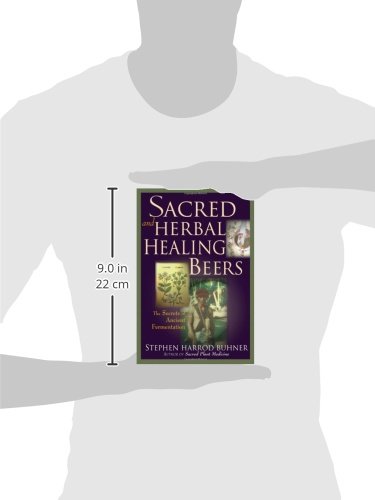




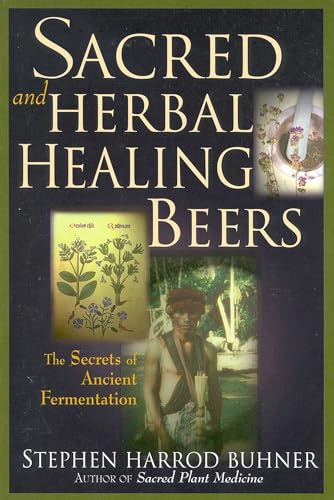
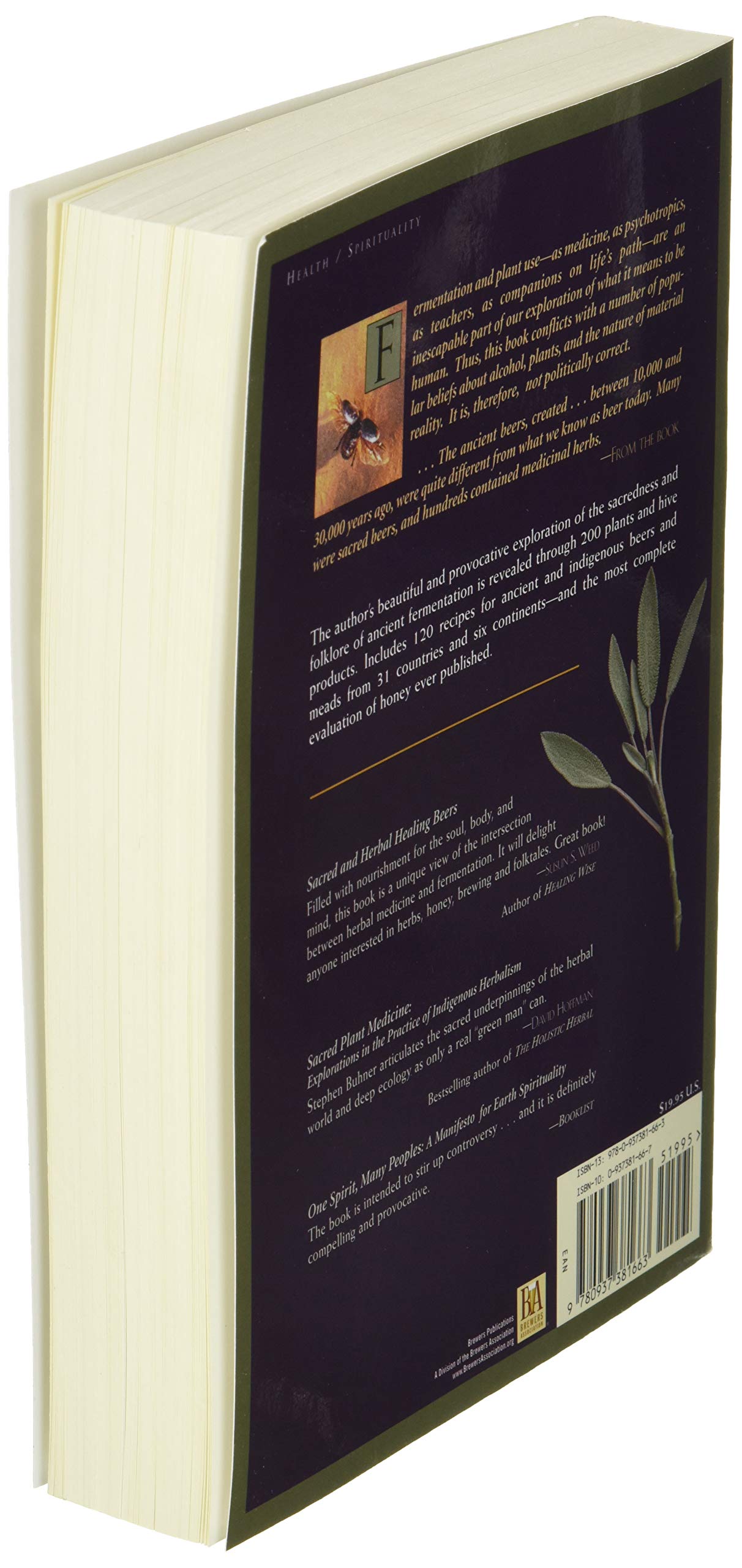
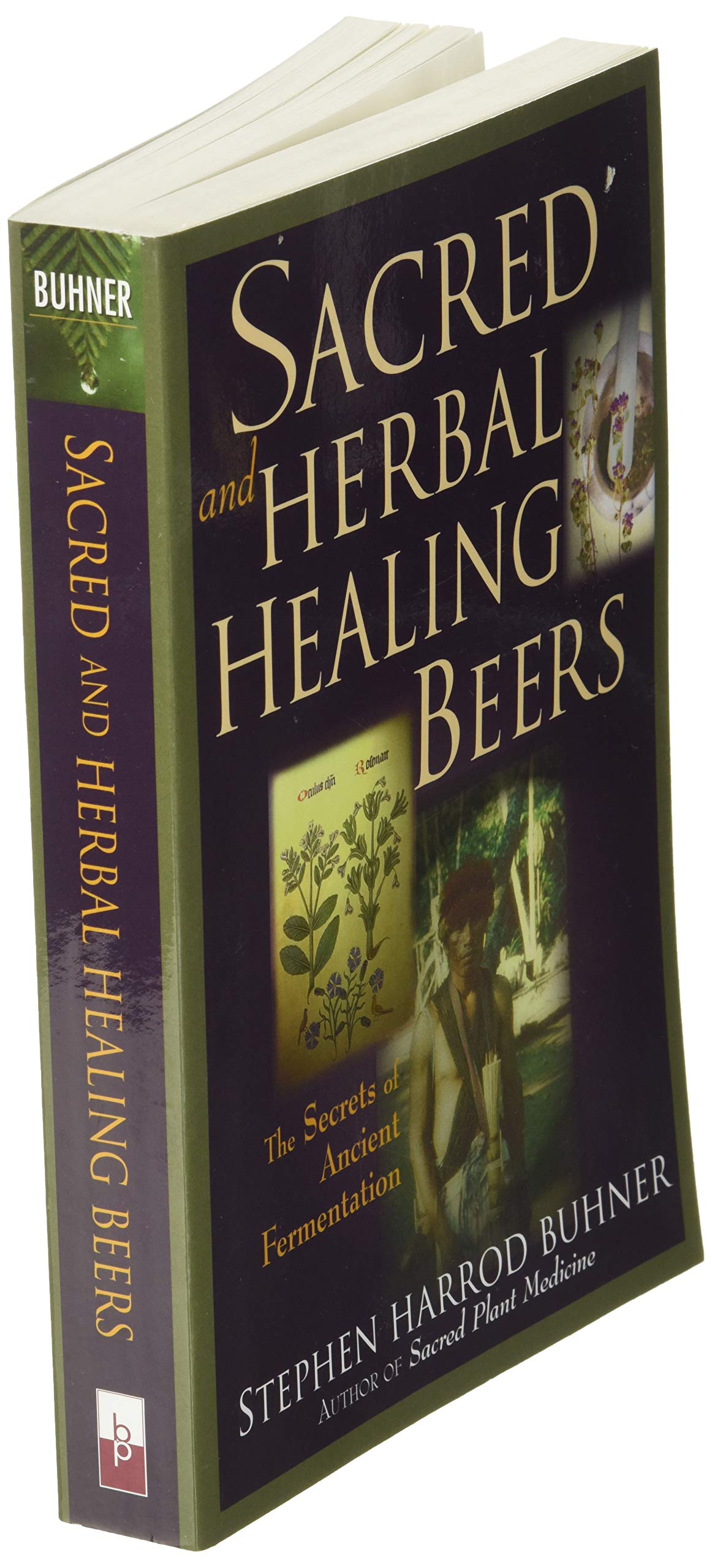
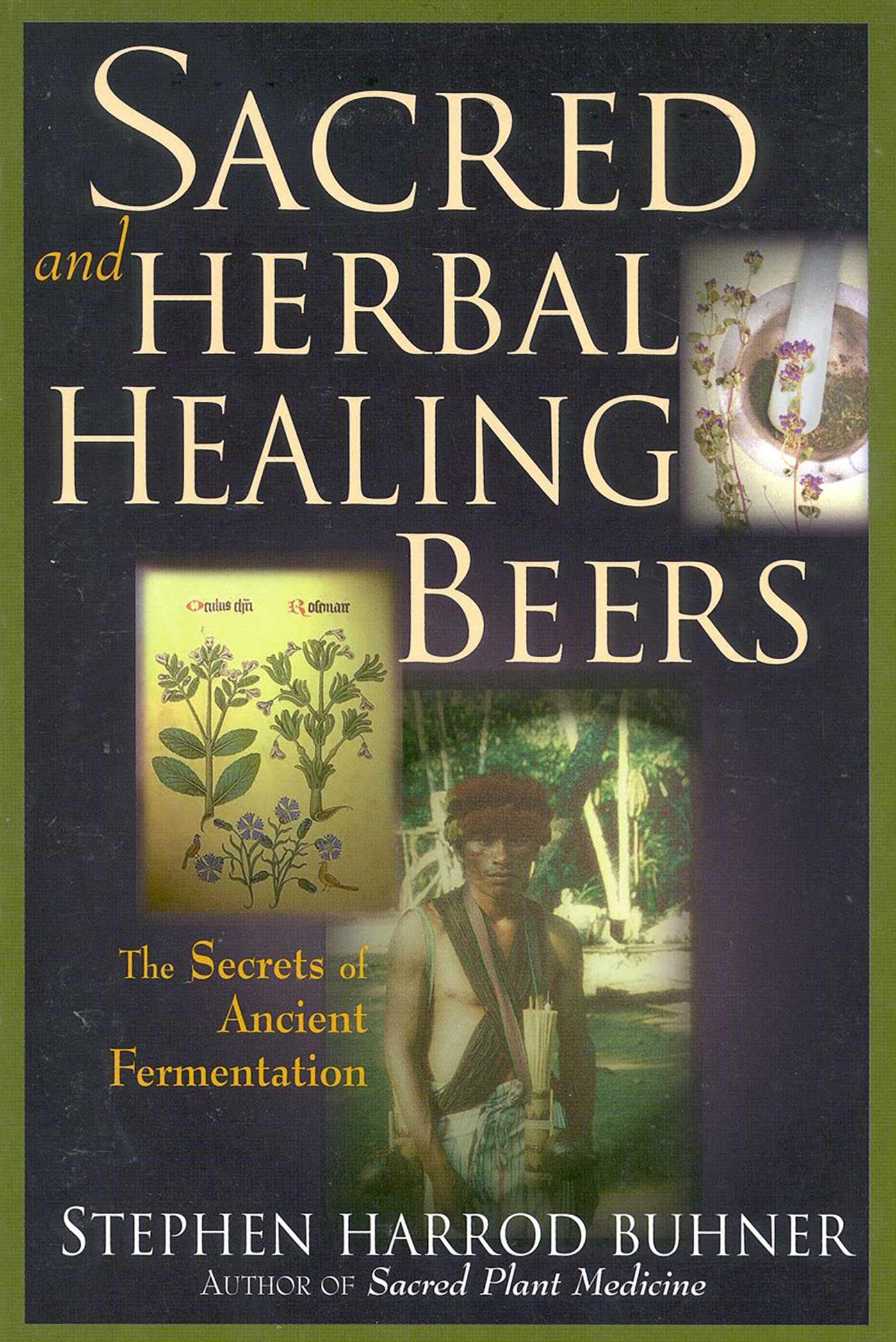
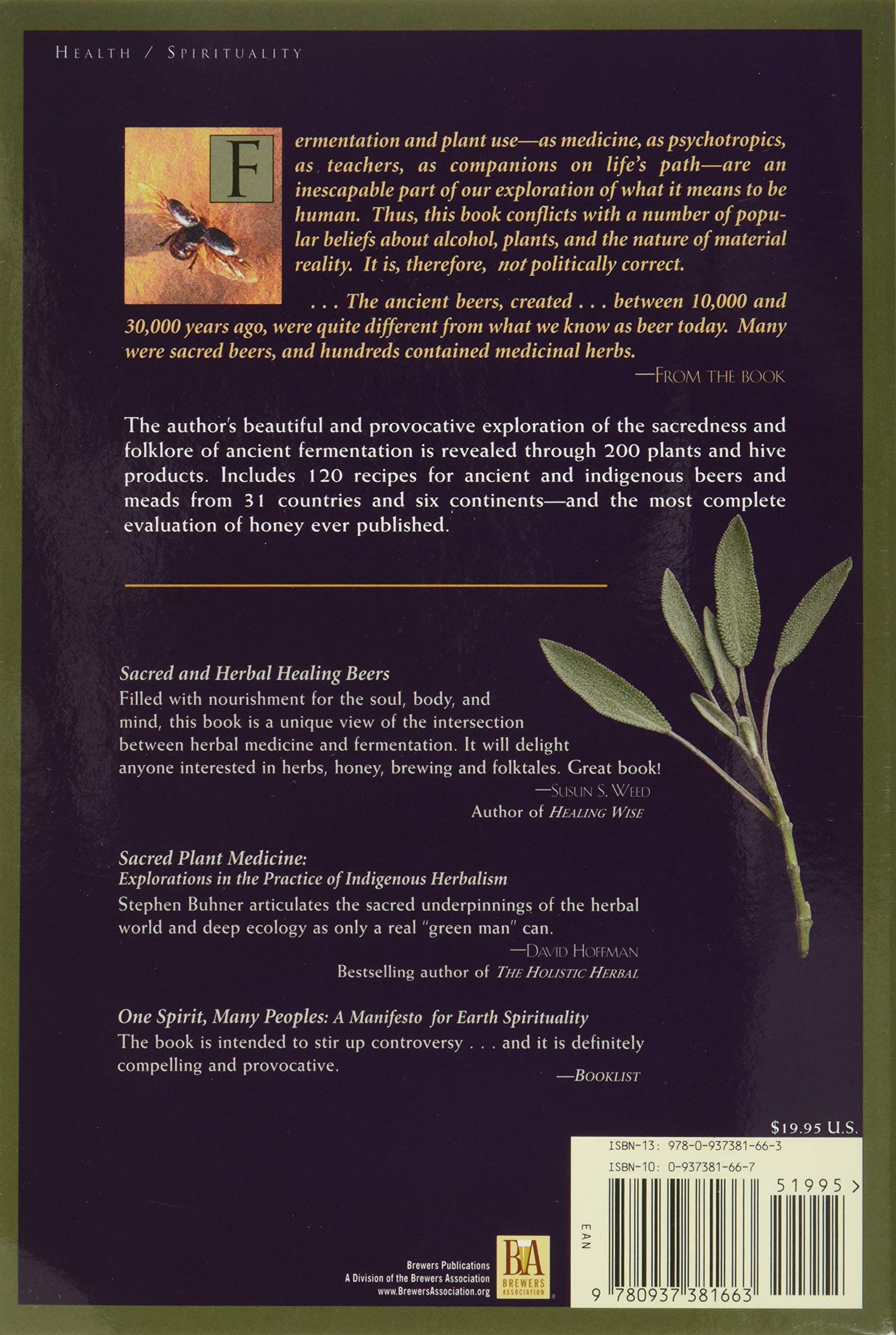
Sacred and Herbal Healing Beers: The Secrets of Ancient Fermentation [Stephen Harrod Buhner] on desertcart.com. *FREE* shipping on qualifying offers. Sacred and Herbal Healing Beers: The Secrets of Ancient Fermentation Review: A Balance of Historical and Practical Information - The book reads in a conversational and historical style that I find enjoyable. Throughout the narrative, there are quotes from relevant sources and often poems. The word "beer" in the title may not be entirely accurate, since it seems to include other fermented brews, like Meade, in its discourse, which may or may not have in common the bubbly effervescence. I do not consider this inaccuracy to be a fault of the title, though, because "beer" is one example of the brews covered in this book and gets enough attention to warrant its primacy in the title. I mention the point only to signal that what is covered in the book is a little larger (in a good way) than the title may imply. The practical information is not the very precise micro-brewing information of modern times, but is more informal and seems to emphasize that we do not need all the micro-brewing equipment. If one is looking for micro-brewing methods and how to use such equipment, this book is definitely not the one to read. But if you are looking for the brewing methods of many cultures, with simpler equipment and adequate to the task, then this book will prove useful. It may, however, take a little more time to learn how to brew a consistent quality this way. I got the book to re-purpose some of the brewing information to make "Kombucha tea", also called the "Manchurian Mushroom" (because it forms a pellicule, or thick layer of cells to protect the liquid it is feeding on, that looks somewhat mushroom like). Kombucha is two yeast groups and two bacterial groups that live in synergy with each other. Because yeast is present in the brew, I thought that information about ancient beers may be useful. I found my intuition confirmed and have slightly altered the recipes in this book to this purpose. The main difference is that the bacterial groups need some caffeine as part of the feeding mix (usually from Green Tea or Yerba Mate), while the beers do not. Kombucha also seems to be better processing regular white sugar, though from the book I am now experimenting with Agave and finding it works well. I should mention that some care is needed in this process and you do need to know what you are doing, and things like sterilization matters (I cannot be responsible for any results done by people who take any implied advice on how to brew from these words, I am merely sharing something from my own experience). I have been able to glean from the book many safe herbs that feel worth trying in this new context, like Nettles and Mugwort. I am look forward to trying Saint John's Wort. Because of this orientation, I find that practical and historical weave together for me and both kinds of information have been useful. The historical information gives me a lot of clues as to the usefulness of the herbs and any precautions to take. It is like a record of how people experienced the brew. Many herbs are described in a lot of detail, sometimes touching upon things that are scientifically verified about them and sometimes just giving traditional lore about them. I have many herbal books and have found with a few of the herbs that this book had new information about some of them, which is fairly rare for me to find. I think the reason why the author sometimes has some extra information is from his ability to extract some vignettes about the herbs from unusual historical lore, whereas many herbal books are presenting information mainly from some standard herbals plus a few updates from recent science. It is one of the things that I find valuable about the book. In summary, the book is well organized, has a lot of historical narrative about the herbs used in brewing, and summarizes how many cultures brewed their sacred beers and even why they considered them sacred, and has many actual recipes. I found it easy to repurpose the information to my Kombucha brewing and found the historical perspective fascinating, informative, and practical. It fills a niche in my exploring how to make healing herbal tonics. Review: Excellent work - First a word on safety. A few of these recipes use toxic ingredients. In general, my studies all suggest however that these ingredients both have long records in brewing and also are reasonably safe in that area. This includes both mandrake and henbane. In fact, henbane was smoked in the Middle Ages, and evidence exists for its use in beer for thousands of years. Mandrake was well known medicinally mixed with wine (Dioscorides mentions it, and mandrake wine seems to have been utilized by Hannibal as a narcotic). However, in all things some caution is required, and there are a few other steps I'd recommend: 1) It's probably a good idea to try small doses of such recipes until you know how your body will respond. 2) It's probably a good idea to do further research before you make up your mind on these matters. Now for a word on substance. This book is written from a very primitivist perspective. The author is upfront about his views in this area, and tries to share them. I didn't feel like the book was overly proselytizing in this area, though I recognize that some fellow reviewers differ here. Secondly he advocates what one might call "unscientific brewing." I'm a big fan of unscientific brewing. I've brewed in similar ways for nearly two decades. In this way, sense, artistry, and experience are used to produce a beer, mead, etc rather than rigorous measurement and control. For example, I sterilize all my equipment with heat (I don't use chemicals), I don't even own a hydrometer, and and I brew beer using touch and feel rather than time and temperature. In this way, I sacrifice some repeatability for variation and an ability to improvise at each step. Sometimes my recipes flop but since each one is an experiment, I just take note about what failed and go on. I figure this is the way brewing was done for centuries and I don't need to change. My view on this, as a long-time "unscientific brewer" is subtly different than Bruhner's. I think to some extent his writings make light of the careful ways that traditional cultures may have for controlling wort infection and the like, and tends to gloss over the role of deep, long-term experience in what was traditionally an art form much like poetry. These shortcomings may be acceptable given his audience (those just starting out), but it's worth noting up front. All in all, I think this is an important contribution to the area of brewing in this area. I may not agree with him on every point, but more voices help us all move forward. Thirdly he provides a large number of recipes. These include molasses-based drinks, white sugar-based drinks, fermented fruit-based beverages, and the like. In general these track various other attempts at various beverages that I have seen, and many of his recipes are taken from old sources. These do not fit in well with standard contemporary brewing approaches which frown on sucrose sources and favor fructose instead, but when one is experienced (see paragraph above), one can still take them as inspiration and adapt them to whatever one wants to make (substituting honey for white sugar, for example). At the same time, I have had commercially produced molasses "beers" (i.e. brewed with molasses instead of malted grain) and they are quite pleasant. Consequently I have to assume that most of the recipes would be just fine how they are. I would however note that it is likely that "sugar" in many of the old recipes was the sort of dried cane syrup one can find at Mexican grocers than the white sugar we use today. This area could be fertile ground for future research. However, whatever faults this book has, it's still a fascinating journey into another world in terms of brewing. I enjoyed it and I see why it was highly recommended to me. It is a solid contribution to this field and I'd highly recommend it to others.













| ASIN | 0937381667 |
| Best Sellers Rank | #209,392 in Books ( See Top 100 in Books ) #46 in Beer (Books) #155 in Homebrewing, Distilling & Wine Making #432 in Herbal Remedies (Books) |
| Customer Reviews | 4.7 4.7 out of 5 stars (527) |
| Dimensions | 6.06 x 1.18 x 8.97 inches |
| ISBN-10 | 9780937381663 |
| ISBN-13 | 978-0937381663 |
| Item Weight | 2.31 pounds |
| Language | English |
| Print length | 450 pages |
| Publication date | September 18, 1998 |
| Publisher | Brewers Publications |
W**Y
A Balance of Historical and Practical Information
The book reads in a conversational and historical style that I find enjoyable. Throughout the narrative, there are quotes from relevant sources and often poems. The word "beer" in the title may not be entirely accurate, since it seems to include other fermented brews, like Meade, in its discourse, which may or may not have in common the bubbly effervescence. I do not consider this inaccuracy to be a fault of the title, though, because "beer" is one example of the brews covered in this book and gets enough attention to warrant its primacy in the title. I mention the point only to signal that what is covered in the book is a little larger (in a good way) than the title may imply. The practical information is not the very precise micro-brewing information of modern times, but is more informal and seems to emphasize that we do not need all the micro-brewing equipment. If one is looking for micro-brewing methods and how to use such equipment, this book is definitely not the one to read. But if you are looking for the brewing methods of many cultures, with simpler equipment and adequate to the task, then this book will prove useful. It may, however, take a little more time to learn how to brew a consistent quality this way. I got the book to re-purpose some of the brewing information to make "Kombucha tea", also called the "Manchurian Mushroom" (because it forms a pellicule, or thick layer of cells to protect the liquid it is feeding on, that looks somewhat mushroom like). Kombucha is two yeast groups and two bacterial groups that live in synergy with each other. Because yeast is present in the brew, I thought that information about ancient beers may be useful. I found my intuition confirmed and have slightly altered the recipes in this book to this purpose. The main difference is that the bacterial groups need some caffeine as part of the feeding mix (usually from Green Tea or Yerba Mate), while the beers do not. Kombucha also seems to be better processing regular white sugar, though from the book I am now experimenting with Agave and finding it works well. I should mention that some care is needed in this process and you do need to know what you are doing, and things like sterilization matters (I cannot be responsible for any results done by people who take any implied advice on how to brew from these words, I am merely sharing something from my own experience). I have been able to glean from the book many safe herbs that feel worth trying in this new context, like Nettles and Mugwort. I am look forward to trying Saint John's Wort. Because of this orientation, I find that practical and historical weave together for me and both kinds of information have been useful. The historical information gives me a lot of clues as to the usefulness of the herbs and any precautions to take. It is like a record of how people experienced the brew. Many herbs are described in a lot of detail, sometimes touching upon things that are scientifically verified about them and sometimes just giving traditional lore about them. I have many herbal books and have found with a few of the herbs that this book had new information about some of them, which is fairly rare for me to find. I think the reason why the author sometimes has some extra information is from his ability to extract some vignettes about the herbs from unusual historical lore, whereas many herbal books are presenting information mainly from some standard herbals plus a few updates from recent science. It is one of the things that I find valuable about the book. In summary, the book is well organized, has a lot of historical narrative about the herbs used in brewing, and summarizes how many cultures brewed their sacred beers and even why they considered them sacred, and has many actual recipes. I found it easy to repurpose the information to my Kombucha brewing and found the historical perspective fascinating, informative, and practical. It fills a niche in my exploring how to make healing herbal tonics.
C**S
Excellent work
First a word on safety. A few of these recipes use toxic ingredients. In general, my studies all suggest however that these ingredients both have long records in brewing and also are reasonably safe in that area. This includes both mandrake and henbane. In fact, henbane was smoked in the Middle Ages, and evidence exists for its use in beer for thousands of years. Mandrake was well known medicinally mixed with wine (Dioscorides mentions it, and mandrake wine seems to have been utilized by Hannibal as a narcotic). However, in all things some caution is required, and there are a few other steps I'd recommend: 1) It's probably a good idea to try small doses of such recipes until you know how your body will respond. 2) It's probably a good idea to do further research before you make up your mind on these matters. Now for a word on substance. This book is written from a very primitivist perspective. The author is upfront about his views in this area, and tries to share them. I didn't feel like the book was overly proselytizing in this area, though I recognize that some fellow reviewers differ here. Secondly he advocates what one might call "unscientific brewing." I'm a big fan of unscientific brewing. I've brewed in similar ways for nearly two decades. In this way, sense, artistry, and experience are used to produce a beer, mead, etc rather than rigorous measurement and control. For example, I sterilize all my equipment with heat (I don't use chemicals), I don't even own a hydrometer, and and I brew beer using touch and feel rather than time and temperature. In this way, I sacrifice some repeatability for variation and an ability to improvise at each step. Sometimes my recipes flop but since each one is an experiment, I just take note about what failed and go on. I figure this is the way brewing was done for centuries and I don't need to change. My view on this, as a long-time "unscientific brewer" is subtly different than Bruhner's. I think to some extent his writings make light of the careful ways that traditional cultures may have for controlling wort infection and the like, and tends to gloss over the role of deep, long-term experience in what was traditionally an art form much like poetry. These shortcomings may be acceptable given his audience (those just starting out), but it's worth noting up front. All in all, I think this is an important contribution to the area of brewing in this area. I may not agree with him on every point, but more voices help us all move forward. Thirdly he provides a large number of recipes. These include molasses-based drinks, white sugar-based drinks, fermented fruit-based beverages, and the like. In general these track various other attempts at various beverages that I have seen, and many of his recipes are taken from old sources. These do not fit in well with standard contemporary brewing approaches which frown on sucrose sources and favor fructose instead, but when one is experienced (see paragraph above), one can still take them as inspiration and adapt them to whatever one wants to make (substituting honey for white sugar, for example). At the same time, I have had commercially produced molasses "beers" (i.e. brewed with molasses instead of malted grain) and they are quite pleasant. Consequently I have to assume that most of the recipes would be just fine how they are. I would however note that it is likely that "sugar" in many of the old recipes was the sort of dried cane syrup one can find at Mexican grocers than the white sugar we use today. This area could be fertile ground for future research. However, whatever faults this book has, it's still a fascinating journey into another world in terms of brewing. I enjoyed it and I see why it was highly recommended to me. It is a solid contribution to this field and I'd highly recommend it to others.
T**N
Delightful book
This book is very enjoyable to read. Part poetry, part history, part recipes. The story of what brewing and drinking used to be: healthful, spiritual, social. Lovely book.
M**I
Ho preso il libro per la preparazione dell'esame del BJCP, consigliato tra i testi per la prova scritta. E' un viaggio piacevole, in un inglese facilmente comprensibile ai più, pieno di notizie e spunti interessanti se ami il mondo delle birre, in particolar modo quelle preparate fuori dagli schemi classici. Si spazia dall'antropologia, alla cultura di popoli lontanissimi attraversando storia e natura. Consigliatissimo a chi piace il genere-
C**N
Livro mágico, todo apreciador de cerveja deveria conhecer. A história fantástica da bebida fermentada que mudou a história da humanidade.
M**B
Great book. Some of the recipes require you to know a bit more about the being process but there is a wealth of knowledge in the book. Lots of information on the history of the different drinks as well as the herbal properties. Some very pleasant brews to make.
K**Y
Good compilation and great insights.
A**R
Wonderful book, very informative and the recipes are easy to follow. A good variety too, and you don't need any special equipment. I have brewed wine and mead at home, and the equipment I have from that was all I needed to brew recipes from this book.
Trustpilot
2 weeks ago
2 weeks ago